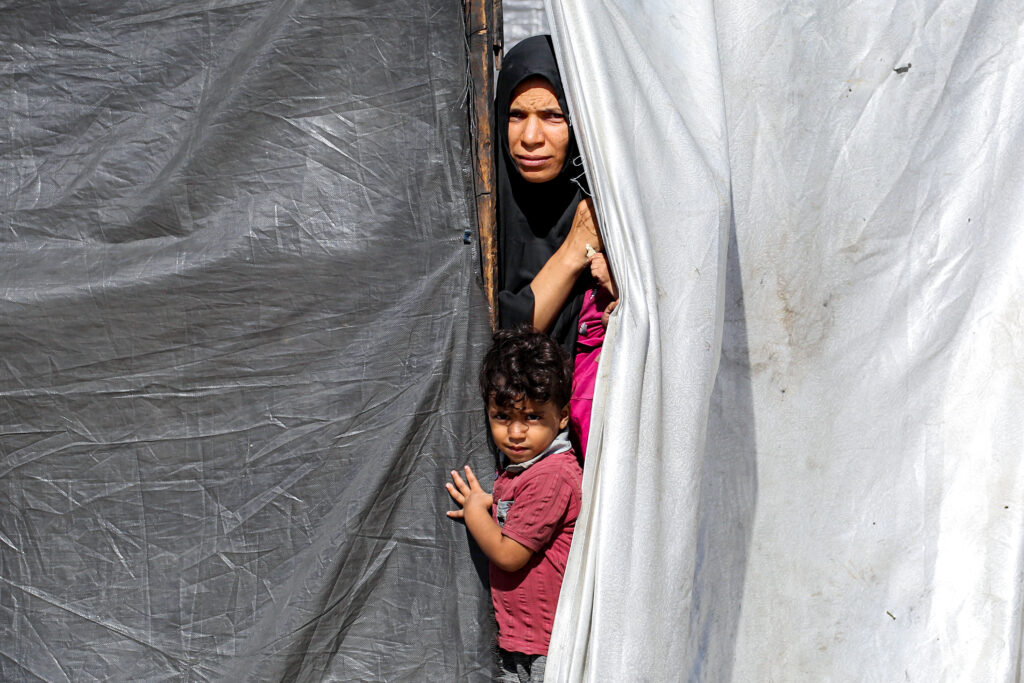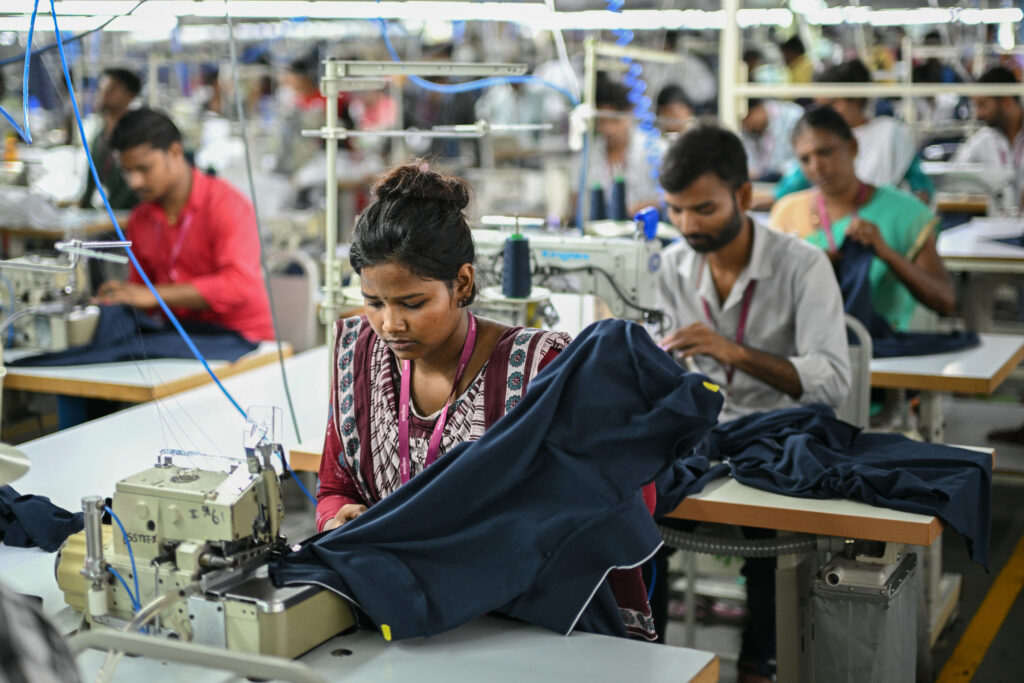AFP Asia Business
US, Qatar, Turkey to join third day of Gaza peace talks in Egypt
Qatar’s prime minister and senior delegates from the United States and Turkey will join Hamas and Israeli negotiators on Wednesday for a third day of talks aimed at ending the Gaza war.Israel and Hamas are holding indirect negotiations in the Egyptian resort town of Sharm El-Sheikh, based on a 20-point plan proposed by US President Donald Trump last month.Qatar’s Prime Minister Sheikh Mohammed bin Abdulrahman Al Thani, Turkey’s intelligence chief Ibrahim Kalin, Trump’s special Middle East envoy Steve Witkoff and son-in-law Jared Kushner are all due to attend the talks.”There’s a real chance that we could do something,” Trump told reporters in the Oval Office on Tuesday, adding that US negotiators were also involved in the talks.”I think there’s a possibility that we could have peace in the Middle East. It’s something even beyond the Gaza situation. We want a release of the hostages immediately.” Trump said the United States would do “everything possible to make sure everyone adheres to the deal” if Hamas and Israel do agree on a ceasefire.The talks came as Israel commemorated the second anniversary of Hamas’s October 7, 2023 attack that triggered the war.At the close of the Jewish festival of Sukkot, Hamas-led militants launched the deadliest attack on Israel in the country’s history, sparking a huge retaliatory offensive in Gaza.It resulted in the deaths of 1,219 people, mostly civilians, according to an AFP tally based on official Israeli figures.Militants also took 251 people hostage into Gaza, of whom 47 remain captive, including 25 the Israeli military says are dead.Global pressure to end the war has escalated, with much of Gaza flattened, a UN-declared famine unfolding and Israeli hostage families still longing for their loved ones’ return.A UN probe accused last month Israel of genocide in Gaza while rights groups have accused Hamas of committing war crimes and crimes against humanity during the October 7 attack. Both sides reject the allegations.Hundreds of thousands of protesters joined pro-Palestinian mass demonstrations in cities across the world last weekend, calling for an immediate end to the war, including in Italy, Spain, Ireland and Britain.Demonstrators in the Netherlands called for their government to recognise a Palestinian state, while tens of thousands in Britain defied Prime Minister Keir Starmer’s calls to skip rallies, holding vigils and gatherings on the October 7 anniversary.- ‘Guarantees’ -Hamas’s top negotiator, Khalil al-Hayya, said the Islamist group wants “guarantees from President Trump and the sponsor countries that the war will end once and for all”.Trump’s plan calls for a ceasefire, the release of all the hostages, Hamas’s disarmament and a gradual Israeli withdrawal from Gaza.The plan received positive responses from both Israel and Hamas and prompted indirect talks in Egypt since Monday.A Palestinian source close to the Hamas negotiating team said Tuesday’s session included Hamas discussing “the initial maps presented by the Israeli side regarding the withdrawal of troops as well as the mechanism and timetable for the hostage-prisoner exchange”.US representatives Witkoff and Kushner were expected to arrive in Egypt on Wednesday, according to Egyptian Foreign Minister Badr Abdelatty, after they were initially expected to arrive last weekend.”The primary guarantee of success at this stage is US President Trump himself… even if it comes to a point to require him imposing a vision,” he said.Israel’s military campaign in Gaza has killed at least 67,160 people, according to the health ministry in the Hamas-run territory, figures the United Nations considers credible.The data does not distinguish between civilians and combatants but indicates that over half of the dead are women and children.burs/dv/dhw/tc
Indian garment exporters reel under US tariffs
When Donald Trump was elected, Indian garment exporter R.K. Sivasubramaniam thought the new US president would boost business and invested heavily in anticipation of a boom.But less than a year later, everything is “upside down”, he admits with a pained smile.Trump’s 50 percent tariffs on Indian goods, imposed in August, have upset the country’s $11 …
Qatar, Turkey to join third day of Gaza peace talks in Egypt
Qatar’s prime minister and Turkish delegates will join Hamas and Israeli negotiators in Egypt on Wednesday for a third day of talks aimed at ending the Gaza war.Indirect negotiations between Israel and Hamas are being held at the Red Sea resort town of Sharm El-Sheikh, based on a 20-point plan proposed by US President Donald Trump last month.”There’s a real chance that we could do something,” Trump told reporters in the Oval Office on Tuesday, adding that US negotiators were also involved in the talks.”I think there’s a possibility that we could have peace in the Middle East. It’s something even beyond the Gaza situation. We want a release of the hostages immediately.” Trump said the United States would do “everything possible to make sure everyone adheres to the deal” if Hamas and Israel do agree on a ceasefire.The talks came as Israel commemorated the second anniversary of Hamas’s October 7 attack that triggered the war.At the close of the Jewish festival of Sukkot, Hamas-led militants launched the deadliest attack on Israel in the country’s history, sparking a huge retaliatory offensive in Gaza.It resulted in the deaths of 1,219 people, mostly civilians, according to an AFP tally based on official Israeli figures.Militants also took 251 people hostage into Gaza, of whom 47 remain captive, including 25 the Israeli military says are dead.Global pressure to end the war has escalated, with much of Gaza flattened, a UN-declared famine unfolding and Israeli hostage families still longing for their loved ones’ return.A UN probe last month accused Israel of genocide in Gaza while rights groups have accused Hamas of committing war crimes and crimes against humanity during the October 7 attack. Both sides reject the allegations.- ‘Guarantees’ -Hamas’s top negotiator, Khalil El-Hayya, said the Islamist group wants “guarantees from President Trump and the sponsor countries that the war will end once and for all”.Trump’s plan calls for a ceasefire, the release of all the hostages, Hamas’s disarmament and a gradual Israeli withdrawal from Gaza.The plan received positive responses from both Israel and Hamas and prompted indirect talks in Egypt since Monday.A Palestinian source close to the Hamas negotiating team said Tuesday’s session included Hamas discussing “the initial maps presented by the Israeli side regarding the withdrawal of troops as well as the mechanism and timetable for the hostage-prisoner exchange”.On Wednesday, Trump’s special Middle East envoy Steve Witkoff will join the talks, according to Egyptian Foreign Minister Badr Abdelatty.”The primary guarantee of success at this stage is US President Trump himself… even if it comes to a point to require him imposing a vision,” he said.Qatar said its prime minister, Sheikh Mohammed bin Abdulrahman Al Thani, would attend, while Turkish state media reported the country’s intelligence chief Ibrahim Kalin would lead a delegation to Egypt.Israel’s military campaign in Gaza has killed at least 67,160 people, according to the health ministry in the Hamas-run territory, figures the United Nations considers credible.The data does not distinguish between civilians and combatants but indicates that over half of the dead are women and children.burs/dv/dcp


